Never use vinegar on these plants as you are more likely to damage and kill them rather than help these species flourish!
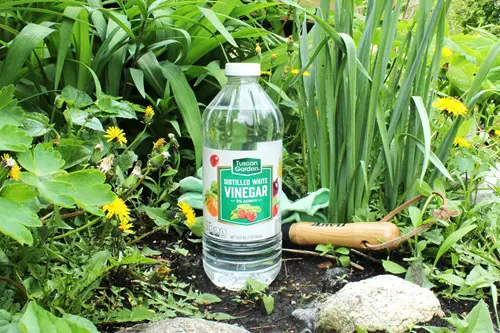
White vinegar is touted as a garden miracle with various benefits, including pest control, foliage cleaning, and efficient fungicide!
However, one plant’s treasure may truly be the scourge of another. Never use vinegar on the following plants, as it will surely damage them, especially when you apply too much!
Never Use Vinegar On These Plants
1. Lavender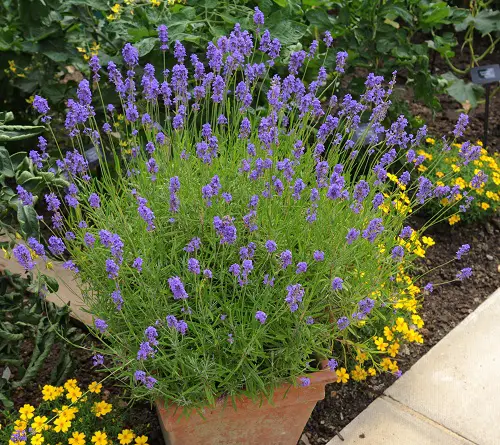
Botanical Name: Lavandula spp.
Lavender is a sun-loving aromatic herb that thrives in well-drained and slightly alkaline soil. If you add vinegar, which is rich in acetic acid, it can lower the soil pH and make it too acidic for the roots to function efficiently.
This can lead to nutrient imbalances and weaken the plant over time. Vinegar also affects the beneficial microbes in the soil, which play a key role in breaking down organic matter and making essential nutrients like calcium and magnesium available to lavender.
2. Hydrangeas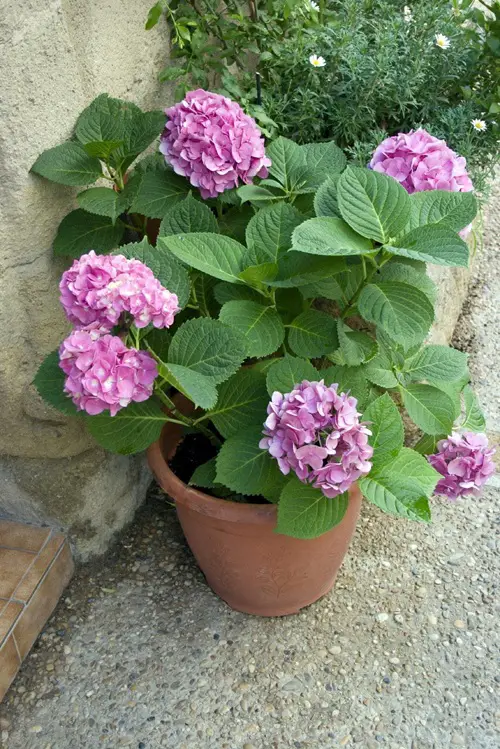
Botanical Name: Hydrangea spp.
Hydrangeas produce showy, abundant blooms that change color based on soil acidity. So you can tweak the soil pH even using vinegar, to make it more acidic.
However, be careful when you do this because if you overdo it, hydrangea roots will struggle to absorb nutrients like phosphorus and magnesium.
This results in weak stems, fewer blooms, and stunted growth. Applying vinegar directly on hydrangea leaves is even more damaging. The acetic acid burns the delicate foliage, and you will soon notice brown and crispy edges.
Instead of vinegar, you can use sulfur or apply organic matter like pine needles or coffee grounds to gradually adjust soil pH for hydrangeas without causing damage.
3. Hostas
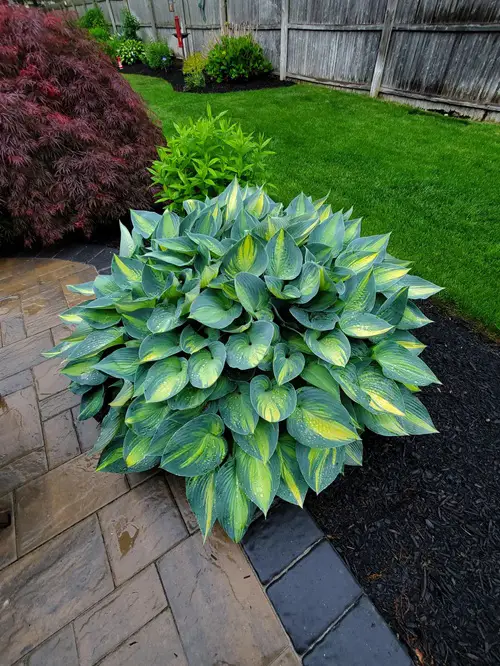
Botanical Name: Hosta spp.
Hostas are stunning shade-loving foliage plants with gorgeous patterned, broad leaves that add much color to dull spaces. However, its tender leaves are susceptible to acidic substances like vinegar, which can cause leaf burn and turn the edges brown and dry!
The problem doesn’t stop with the leaves because if vinegar seeps into the soil, it can disrupt the root system. When this happens, your plant’s ability to take up water and nutrients will be affected, which leads to slower growth and smaller leaves.
Tip: If your hostas are infested with slugs, try using crushed eggshells instead of vinegar.
4. Aloe Vera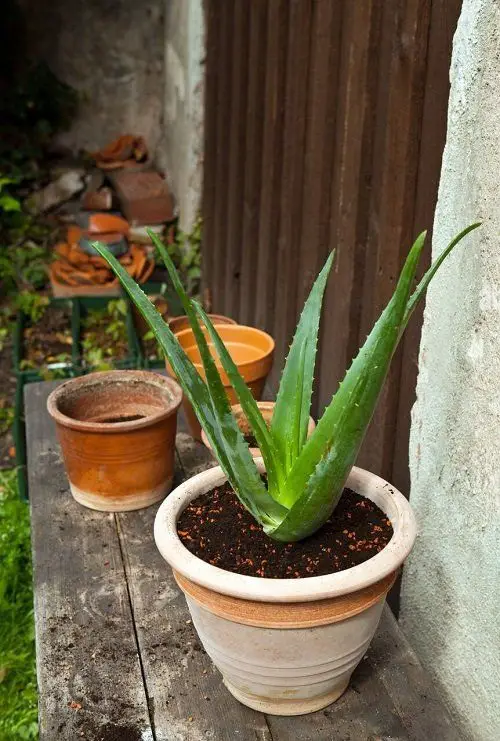
Botanical Name: Aloe barbadensis miller
Aloe vera is designed to store water in its thick, fleshy leaves. This water is a major part of its famous gel that has numerous benefits. However, when you use vinegar, it interferes with its water-holding capacity by breaking down the leaf’s protective coating.
As the leaf loses moisture rapidly, the result is shriveled and dehydrated leaves that struggle to recover. Vinegar also exposes aloe to root rot, fungal infections, and other issues.
Tip: While vinegar can be used to clean aloe leaves, we suggest a simple and harmless way—simply wipe them down with a damp cloth!
5. Tomato
Botanical Name: Solanum lycopersicum
Using vinegar on tomatoes is speeding up its death! These plants with juicy fruits are susceptible to even tiny amounts of acidic substances like vinegar, which will weaken plant cell walls and lead to curling, wilting, and fungal attacks in leaves.
Tomatoes are ultra-sensitive to humidity, pests, nutrition, temperature, etc. Vinegar disrupts the calcium available, leading to blossom end rot in tomatoes. This condition leads to dark, sunken spots on the fruit and ruins your harvest.
Tip: Instead of vinegar, you can use a mild baking soda spray or neem oil to prevent fungal infections and pest issues.
6. Roses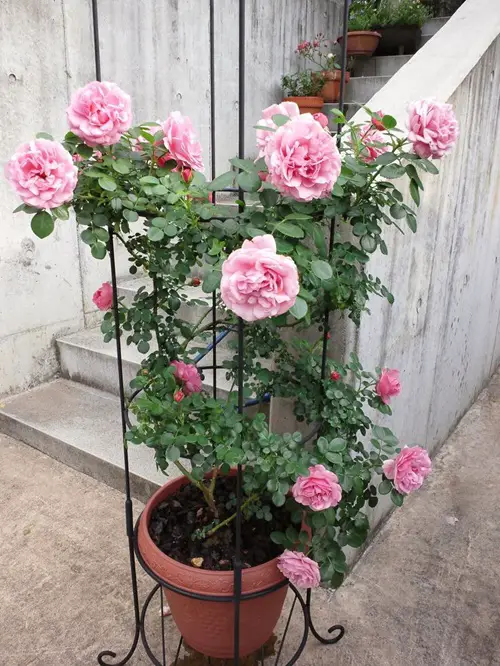
Botanical Name: Rosa spp.
Roses need a well-balanced soil environment to produce those beautiful blooms. When you use Vinegar regularly, it disrupts this balance by killing beneficial bacteria that help break down organic matter and release essential nutrients into the soil, leading to weakness and fewer blooms.
And spraying vinegar directly on its leaves can lead to leaf spotting, yellowing, and permanent tissue damage in your plant! For healthier and more abundant blooms, do this instead.
7. Mint
Botanical Name: Mentha spp.
Mint is a vigorous grower but cannot tolerate excess acidity, which hampers its ability to absorb nutrients and lead to fewer leaves.
Herbs like mint are popular for their essential oils, and vinegar can also affect the production of these oils, and lead to an insipid harvest.
Direct contact with vinegar can also damage its tender foliage. If you use vinegar to suppress weeds around mint, do mulching with cardboard instead. This is the best way to maintain soil moisture while preventing unwanted weed growth.
8. Ferns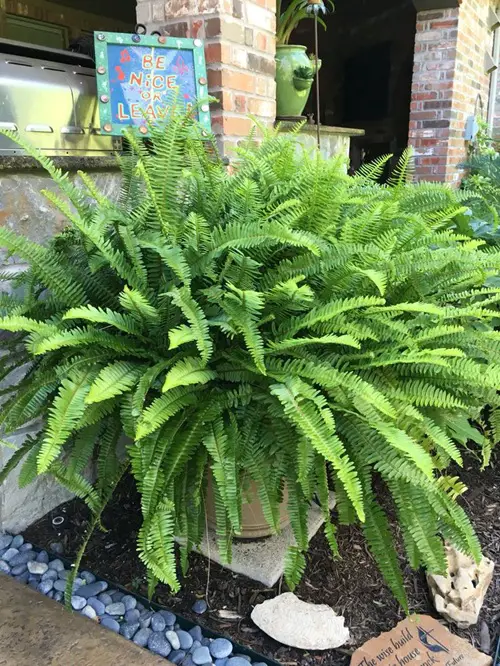
Botanical Name: Polypodiopsida
Ferns are extremely sensitive to acidic solutions like vinegar. Don’t feed vinegar to their delicate, moisture-loving fronds, as that can dry them out quickly and lead to unsightly browning and dehydration—ferns struggle to recover from this damage!
Vinegar can also alter the soil composition, which makes it harder for ferns to retain moisture. This issue often leads to droopy, lifeless foliage, even if the soil is regularly watered. To deter pests, opt for neem oil or insecticidal soap instead of vinegar.


